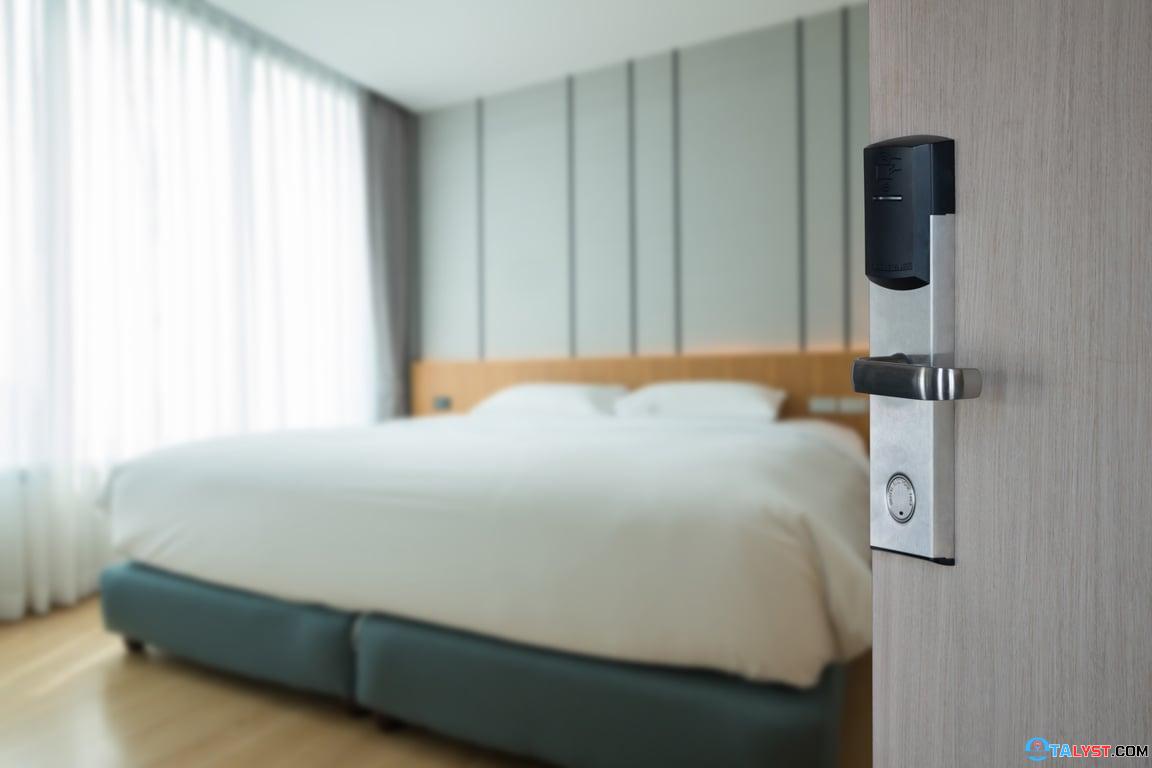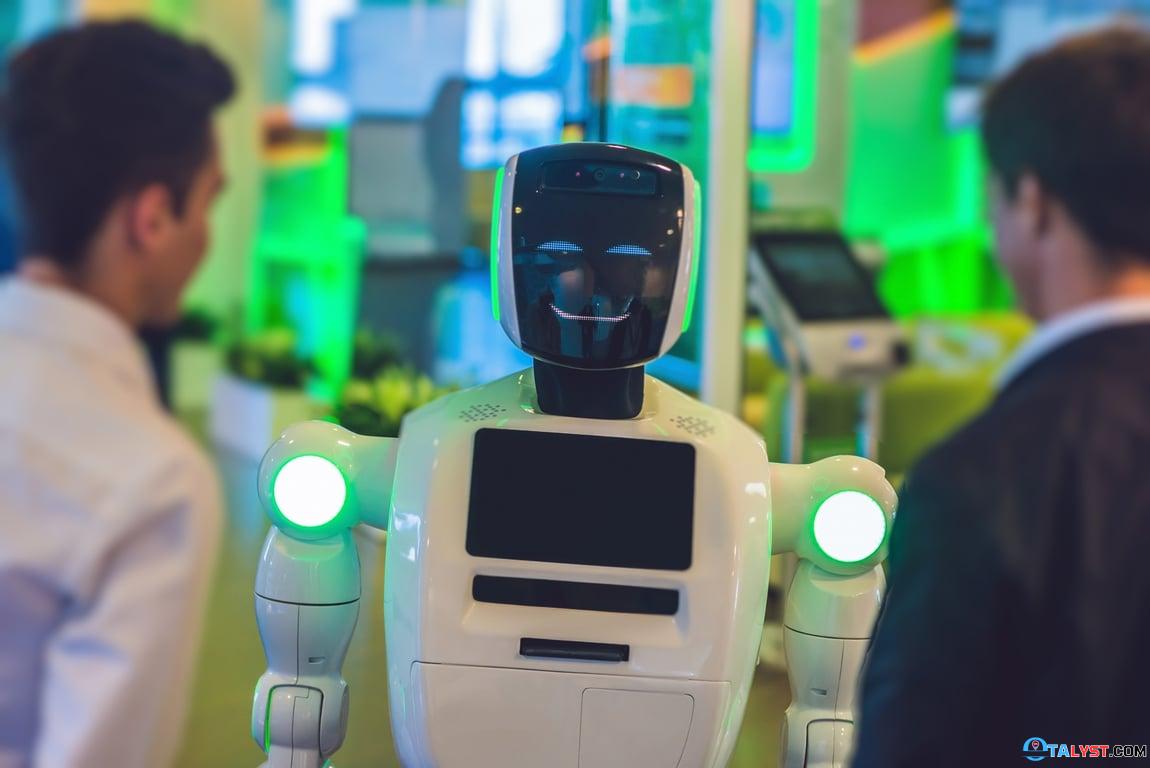Discover the world of smart hotels and the technology behind them. Learn how AI is transforming the hospitality industry. As we navigate our lives in an age of relentless technological advancements, we discover a growing narrative around innovative applications. This narrative is swiftly infiltrating the hotel industry, introducing the groundbreaking concept known as “smart hotels”.
Bolstered by groundbreaking technologies like Artificial Intelligence (AI) and the Internet of Things (IoT), intelligent hotels are revolutionizing guest experiences and operational processes.
Let’s unpack the world of smart hotels in the hospitality industry. This brief guide seeks to provide a concise understanding of the transformative impact technologically advanced hotels are making.
The Emergence and Impact of Smart Hotels
Defining what smart hotels are takes more than just a couple of buzzwords. They are, in fact, driving changes in the hospitality industry. They utilize cutting-edge technologies like AI and IoT to escalate administrative productivity and embellish guest experiences. These hotels incorporate tech-centric elements at their core.
Standard features of a AI smart hotel include advanced access control mechanisms and digital unlocking systems. Also, these hotels equip their rooms with real-time monitoring systems. From managing room occupancy, processing room service requests, to regulating room temperature, these systems offer guests an experience rooted in convenience and efficiency.
Smart hotels are no longer an opulent luxury; they are becoming a standard requirement, shifting the hospitality industry’s future trajectory toward efficiency, convenience, and sustainability. These smart establishments are stepping stones toward addressing evolving customer needs and expectations, all fueled by technological progress.
Aligning Customer Demands With Technological Innovations
Today’s guest demands are shaped by an insatiable desire for a new experience. To cater to this, technologically advanced hotels offer a range of personalized, technology-driven services that serve more than just comfort. The advent of high-speed Wi-Fi, digital check-ins, and mobile-controlled room settings are only the tip of this technological iceberg.

The Role of AI in Smart Hotels
The introduction of Artificial Intelligence (AI) into next-gen hotels is a monumental step. From automating routine tasks to curating personalized guest experiences, AI smart hotels are setting new standards in the hospitality industry.
Transforming Guest Experiences with AI
Chatbots and AI-backed virtual assistants are now a common feature in digital hotels. These systems can manage routine inquiries, facilitate booking procedures, and offer personalized recommendations based on guest preferences. Moreover, AI-enabled tools equipped with language translation capabilities are on the rise, bridging language gaps and making guests feel more understood.
Operational Efficiency and AI
AI is a game-changer when it comes to hotel operations. AI-empowered reservation systems are revolutionizing room allocation and dynamic pricing strategies. AI’s predictive analytics can also help intelligent accommodations hotels anticipate demand changes, enabling effective inventory management, resource allocation, and efficient hotel reputation management.
Key Features of Smart Hotels
High-tech hotels serve up a platter of robust features designed to maximize guest comfort and convenience.
Comfort Meets Convenience: The Smart Room Experience
Central to the smart hotel experience are the smart rooms. These are not your average hotel rooms; they are equipped with advanced technologies that give you unprecedented control over your stay. From controlling the room’s lighting and temperature with your voice or smartphone to requesting room service without having to pick up the phone, the possibilities are endless. Integration with existing hotel software systems ensures that these features work seamlessly, offering you a stay that is both comfortable and futuristic.

Embracing Sustainability in Smart Hotels
It’s not just about technology; intelligent hotels also have a heart for the environment. They employ intelligent systems that manage energy requirements through smart lighting, water conservation, and even waste management. By doing so, they not only reduce the hotel’s carbon footprint but also attract a growing segment of eco-conscious travelers.
Beyond the Guest Room: Smart Features Inside the Hotel
Next-gen hotels also employ advanced technologies in common areas like lobbies, restaurants, and meeting rooms. Biometric access controls, real-time utility monitoring, and even robot-assisted services are no longer rare sights. All these elements contribute to a futuristic yet highly efficient hotel environment.
Implementing Smart Hotel Technology: Challenges and Solutions
Adopting smart technology is a hefty task that demands considerable investment and planning. However, the benefits, from operational efficiencies to improved guest satisfaction, often outweigh these initial costs. Compatibility with existing systems, from Property Management Systems to customer relationship management software, is essential.
For hotels considering this transition, pilot programs are an excellent starting point as they offer valuable operational insights. Staff training is another crucial aspect, ensuring that the human element in the hospitality industry remains competent in an increasingly digital environment.

The Future: What Lies Ahead for Smart Hotels
Smart hotels are not just a trend; they are the future of the hospitality industry. Innovations such as virtual butlers, robot chefs, and app-based services are making waves. Hotels like Wynn Resort in Las Vegas and Yotel Hotel in Singapore are already implementing such cutting-edge technologies.
Moreover, the quest for sustainability is also pushing technologically advanced hotels to explore eco-friendly initiatives. From tech-free zones that allow for a digital detox to the incorporation of renewable energy sources, the future looks promising.
In conclusion, intelligent hotels are indeed the future of hospitality, offering a seamless blend of technological sophistication, personalized experience, and eco-friendly initiatives.
Tools like PMS (Property Management System) and CM (Channel Manager) only assist lodging establishments in operating more simply, saving time, and being more efficient compared to not using them. However, that is not the root of growth or the challenges faced in the accommodation business. If you want to effectively manage OTA channels and create stable growth, you should have a clear understanding of how OTA platforms operate, such as their nature, operational models, and how they display, calculate displayed prices, and collect prices (after deducting commissions). Of course, larger hotels that want to approach it systematically will do it synchronously from the beginning, but smaller lodging establishments wanting to reduce operational costs should overlook it and focus on optimizing display and providing outstanding customer care.
Synthesized by: OTA Lyst












































